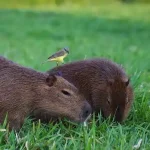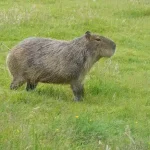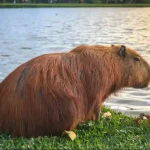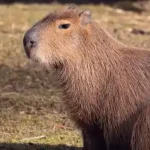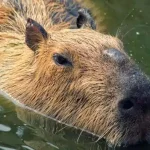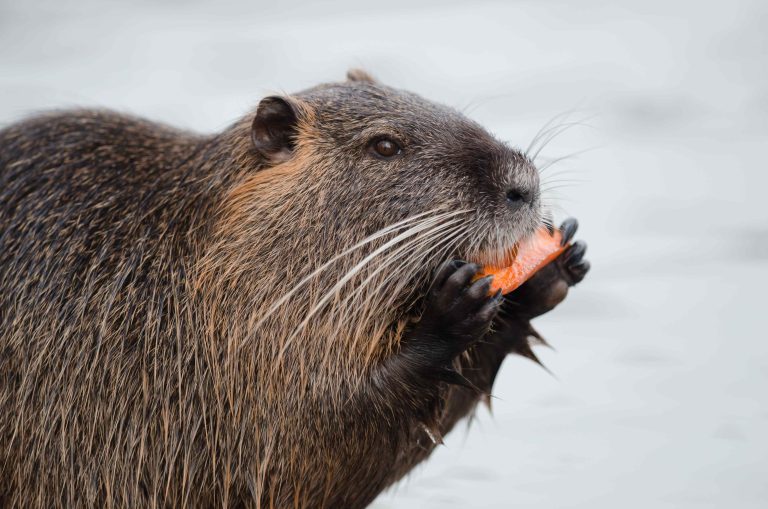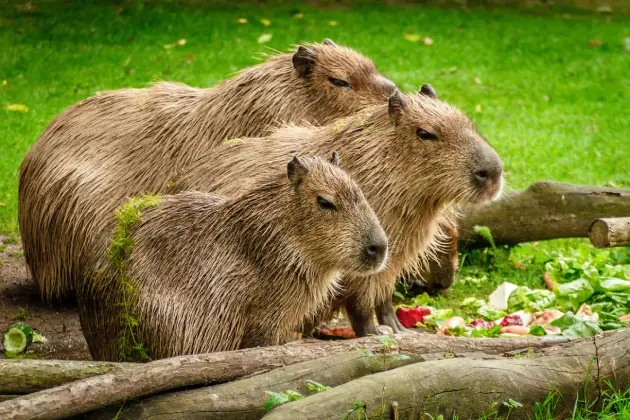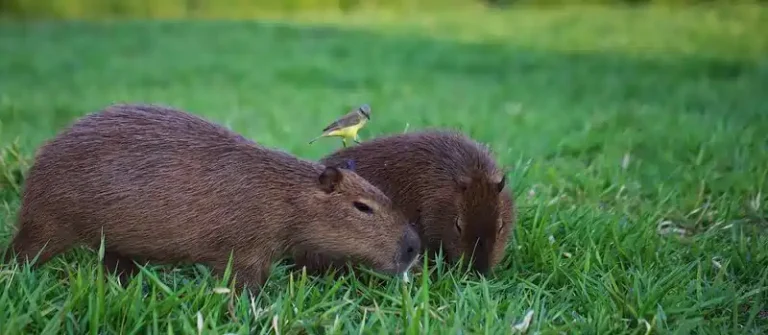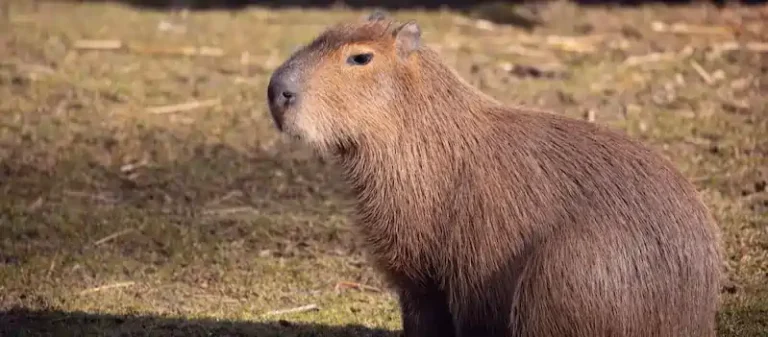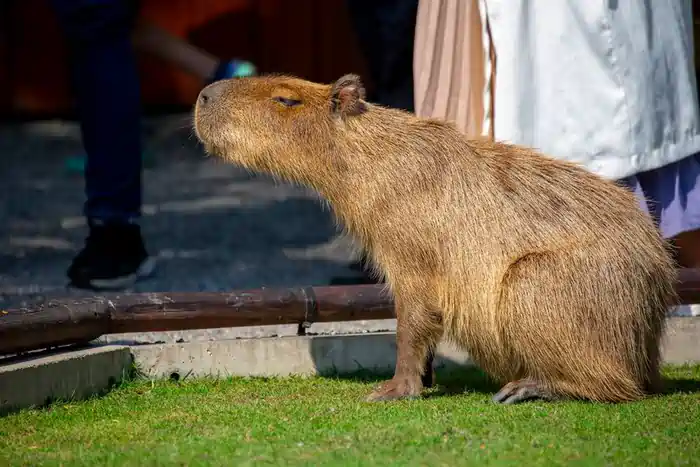
Capybaras have recently become a popular pet choice for animal enthusiasts. These large, friendly rodents are known for their calm demeanor and social nature. They are often found lounging by the water, enjoying the company of other animals, or simply basking in the sun. However, before you decide to adopt one of these gentle creatures, it is important to understand the laws surrounding their ownership. If you live in Virginia or West Virginia, you may wonder if it’s legal to own a capybara in these states. In this article, we will explore whether it is possible to own a capybara in both Virginia and West Virginia, the regulations that apply, and the responsibilities involved in caring for these unique animals.
What Is a Capybara?
Before diving into the specifics of capybara ownership in Virginia and West Virginia, let’s take a moment to understand what a capybara is. Capybaras are the largest rodents in the world. Native to South America, these animals can grow up to four feet long and weigh over 140 pounds. Despite their size, they are gentle, social, and affectionate creatures that enjoy the company of other animals and people.
Capybaras are semi-aquatic animals, which means they enjoy swimming and spending time in the water. They are herbivores, primarily feeding on grasses, vegetables, and fruits. In the wild, they live in groups near bodies of water, and they thrive in environments that allow them to socialize and swim. As pets, capybaras require ample space, a water source for swimming, and a companion, whether that be another capybara or a human.
Can You Own a Capybara in Virginia?
If you live in Virginia and are considering owning a capybara, you’ll be happy to know that it is possible, but it does come with certain requirements. In Virginia, owning a capybara is legal with the proper permits. The Virginia Department of Wildlife Resources (VDWR) requires individuals to obtain an Exotic Animal Permit before keeping a capybara as a pet.
Exotic Animal Permits in Virginia
To legally own a capybara in Virginia, you must apply for an Exotic Animal Permit through the Virginia Department of Wildlife Resources. This permit allows you to possess exotic animals, including capybaras, as long as you meet specific guidelines. Some of the key requirements for obtaining the permit include:
- Application Process: You must complete an application form for the permit and submit it to the VDWR.
- Non-refundable Fee: There is a non-refundable fee associated with the application process.
- Proof of Proper Housing: You must provide documentation that demonstrates you can provide a suitable living environment for the capybara. This includes adequate space, secure fencing, and access to water for swimming.
- Annual Renewal: The Exotic Animal Permit is valid for one year, after which it must be renewed.
Additionally, the public should not be allowed to come into direct contact with animals under this permit or be in close proximity where their health and safety could be at risk.
At Capybara Pet Info, we emphasize that while owning a capybara in Virginia is possible, it’s crucial to meet the legal requirements and ensure you can provide the appropriate care for these unique creatures.
Responsibilities of Owning a Capybara in Virginia
If you are granted the permit, it is important to remember that owning a capybara comes with many responsibilities. These animals are social, require a large living space, and need regular care. Capybaras thrive when they have access to water for swimming and a safe environment to roam. Additionally, they need plenty of social interaction, either with other capybaras or with their human owners.
Can You Own a Capybara in West Virginia?
In contrast to Virginia, the laws regarding capybara ownership in West Virginia are more restrictive. In West Virginia, owning a capybara is generally prohibited unless you meet very specific conditions.
Dangerous Wild Animal Laws in West Virginia
West Virginia has strict regulations regarding the ownership of dangerous wild animals. Under the state’s laws, capybaras are considered dangerous wild animals due to their large size and semi-aquatic nature. As a result, owning a capybara is prohibited unless the animal was owned before June 1, 2015, and the owner obtained a special permit.
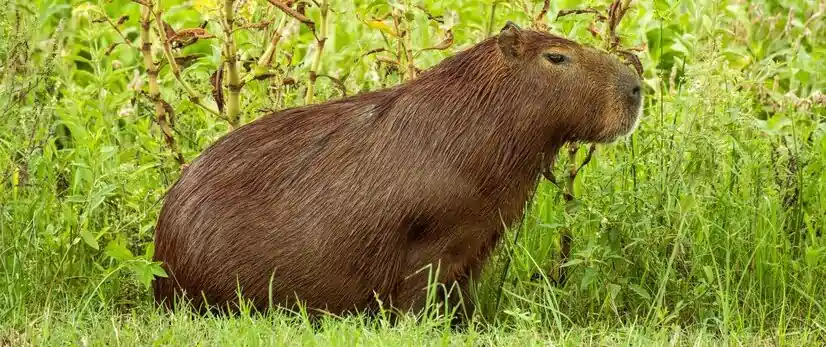
Special Permit Requirements
For those who wish to own a capybara in West Virginia, the requirements include obtaining a permit to possess dangerous wild animals. These permits come with specific conditions, such as:
- Liability Insurance: You must have liability insurance to cover any potential damages caused by the animal.
- Proper Housing: The permit requires that the capybara be housed in an appropriate enclosure that meets state standards for safety and animal welfare.
- Restricted Public Interaction: The capybara must not be in close contact with the general public. This is to ensure public safety and prevent accidents.
It’s important to note that even with these permits, there are significant restrictions in place. Capybara owners must ensure that they comply with all state laws, including those that govern the health and safety of both the animal and the public.
Prohibited Ownership Without a Permit
If you do not meet the criteria for owning a capybara in West Virginia, you may not be able to legally keep one as a pet. West Virginia’s laws are designed to protect both the public and the animals, and they impose strict regulations on the possession of exotic animals.
What You Need to Know Before Owning a Capybara
Whether you live in Virginia or West Virginia, it’s important to understand that owning a capybara is a big commitment. These animals require special care, a suitable living environment, and plenty of attention. Here are some things to consider before deciding to adopt a capybara:
Space Requirements
Capybaras are large animals that need ample space to roam. They are social creatures that thrive in open environments where they can interact with other animals or humans. In addition to a spacious yard, capybaras also require access to water, such as a pond or large pool, where they can swim and cool off.
Socialization and Companionship
Capybaras are highly social animals that need companionship. They can become lonely or depressed if kept alone for long periods. It is recommended to keep at least two capybaras together to ensure they have the social interaction they need. If you choose to keep a single capybara, you must be prepared to spend a significant amount of time bonding with it.
Diet and Health Care
Capybaras are herbivores, and their diet should consist of fresh hay, leafy greens, fruits, and vegetables. They also need access to fresh water at all times. Regular veterinary care is essential to monitor their health and prevent any issues that might arise.
Behavioral Considerations
Capybaras are known for their calm and affectionate nature. However, they do require proper training and socialization to ensure they behave well in their home. They can form strong bonds with their human families, and they are often quite affectionate.
Conclusion
In conclusion, owning a capybara is legal in Virginia with the proper permits, but it is much more restricted in West Virginia. If you’re considering adopting a capybara, make sure to research the laws in your area and ensure that you can provide the necessary care and environment for these unique animals. At Capybara Pet Info, we are committed to helping potential capybara owners understand the responsibilities involved and ensure that these animals are well cared for.
FAQs
1. Is it legal to own a capybara in Virginia?
Yes, it is legal to own a capybara in Virginia, but you must obtain an Exotic Animal Permit from the Virginia Department of Wildlife Resources.
2. Can I own a capybara in West Virginia?
Owning a capybara in West Virginia is generally prohibited unless the animal was owned before June 1, 2015, and the owner has a special permit.
3. What do capybaras need in their living environment?
Capybaras need ample space, a secure enclosure, and access to water for swimming. They also require social interaction with other capybaras or humans.
4. Do I need a special permit to own a capybara in Virginia?
Yes, you must apply for an Exotic Animal Permit from the Virginia Department of Wildlife Resources to legally own a capybara in Virginia.
5. How much space do capybaras need?
Capybaras require a large yard or enclosure with access to water. They are social animals and need enough space to roam and interact with others.


